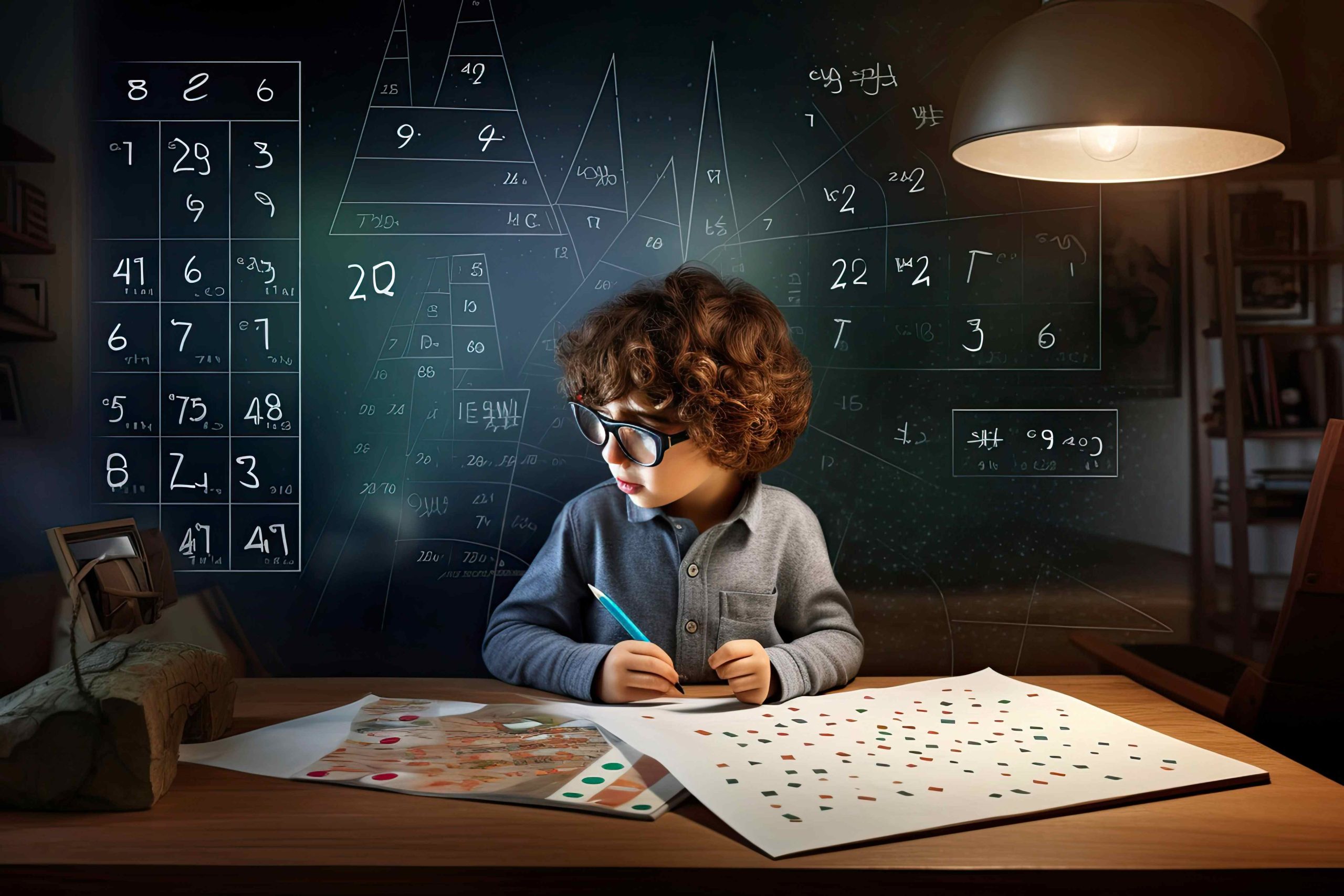
Early Mathematical Concept Development in Preschoolers
Mathematics is a fundamental aspect of everyday life, often regarded as one of the most important subjects taught in schools. However, what many may not realize is that young preschoolers are also capable of grasping mathematical concepts. This article aims to explore the various mathematical ideas that toddlers can acquire and how parents and caregivers can support their development.
Introduction to Preschool Mathematics
Preschoolers are naturally curious about the world around them, presenting an opportune time to introduce them to basic arithmetic concepts. At this developmental stage, children are acquiring numerous skills, including mathematical abilities. Parents and caregivers play a crucial role in nurturing these skills and preparing children for future success by providing opportunities to learn about mathematical concepts.
Key Concepts in Preschool Mathematics
Cardinality and Counting: Preschoolers can begin to grasp the concept of counting by recognizing numbers and understanding one-to-one correlation. Engaging children in counting activities, such as counting toys or objects, helps reinforce their understanding of cardinality.
Space Awareness and Shapes: Playing with blocks and other toys aids in developing preschoolers’ spatial awareness and understanding of shapes. By arranging blocks in different configurations, children learn about symmetry and spatial relationships, enhancing their geometric comprehension.
Measurement: Preschoolers learn about measurement by comparing the sizes of objects and using simple measuring tools like rulers and scales. Activities like comparing toy sizes or measuring lengths help children understand concepts like length, weight, and volume.
Patterns: Preschoolers observe patterns in their surroundings and can create their own patterns using toys or blocks. Engaging in pattern-making activities enhances their pattern-recognition skills, which are essential for understanding more abstract mathematical concepts.
Problem-Solving: Activities that encourage logic and critical thinking, such as arranging blocks or solving puzzles, help preschoolers develop problem-solving skills. These activities prepare children for tackling more complex challenges in the future.
Supporting Preschoolers’ Mathematical Development
Encourage Exploration: Preschoolers learn best through play and discovery. Providing toys and activities that promote mathematical thinking allows children to explore mathematical concepts in a playful environment.
Promote Critical Thinking: Asking open-ended questions that encourage preschoolers to think mathematically fosters critical thinking skills. Challenging children to explore different ways of arranging blocks or solving puzzles stimulates their mathematical reasoning.
Make Math Fun: Incorporating games, songs, and activities into learning makes mathematics enjoyable for preschoolers. Singing counting songs, playing arithmetic games, and building patterns with blocks are engaging ways to introduce mathematical concepts.
Be Patient: Developing mathematical ideas takes time, and preschoolers need patience and support as they explore and learn. Allowing children the time and space to develop their mathematics abilities at their own pace is essential.
Provide Real-World Context: Connecting mathematical concepts to real-life situations helps preschoolers understand their relevance. Involving children in activities like measuring ingredients for baking provides practical applications for mathematical concepts.
Utilize Technology: Educational games and apps can effectively engage preschoolers in mathematical concepts. Interactive technology provides another avenue for children to practice and reinforce mathematical skills.
Promote Exploration: Hands-on learning experiences and opportunities for exploration enhance preschoolers’ mathematical abilities. Allowing children to engage in activities like measuring and pouring ingredients encourages active learning.
Use Visual Aids: Visual tools like charts, graphs, and diagrams help preschoolers visualize mathematical concepts. These aids make abstract ideas more tangible and easier for children to understand.
Offer Positive Reinforcement: Acknowledging children’s efforts and achievements with praise and rewards encourages them to continue learning and exploring mathematical concepts.
Conclusion
In conclusion, preschoolers’ development of mathematical concepts is a crucial aspect of their overall growth. Parents and caregivers play a vital role in supporting this development by providing opportunities for inquiry, fostering critical thinking, making math enjoyable, and offering real-world context. It’s important to recognize that every child learns at their own pace and to provide the necessary encouragement and guidance tailored to each child’s needs. By incorporating various techniques into daily routines, preschoolers can develop a love for math and a solid foundation in mathematical concepts that will benefit them throughout their lives.
Additional Strategies for Supporting Preschoolers’ Mathematical Development
Offer Measurement Opportunities: Preschoolers can enhance their understanding of measurement by measuring objects and spaces in their environment.
Play Board Games: Board games that incorporate mathematical concepts like sorting and counting provide a fun way for preschoolers to practice math skills.
Utilize Technology: Educational games and apps can further reinforce preschoolers’ mathematical abilities in an engaging and interactive manner.
Teach Patterns and Shapes: Introducing preschoolers to different shapes and patterns helps develop their spatial reasoning and problem-solving skills.
Integrate Math into Daily Life: Involving preschoolers in everyday activities that require math, such as counting and sorting items, helps reinforce mathematical concepts.
By implementing these additional strategies, parents and caregivers can continue to support preschoolers’ mathematical development and prepare them for future academic success.


